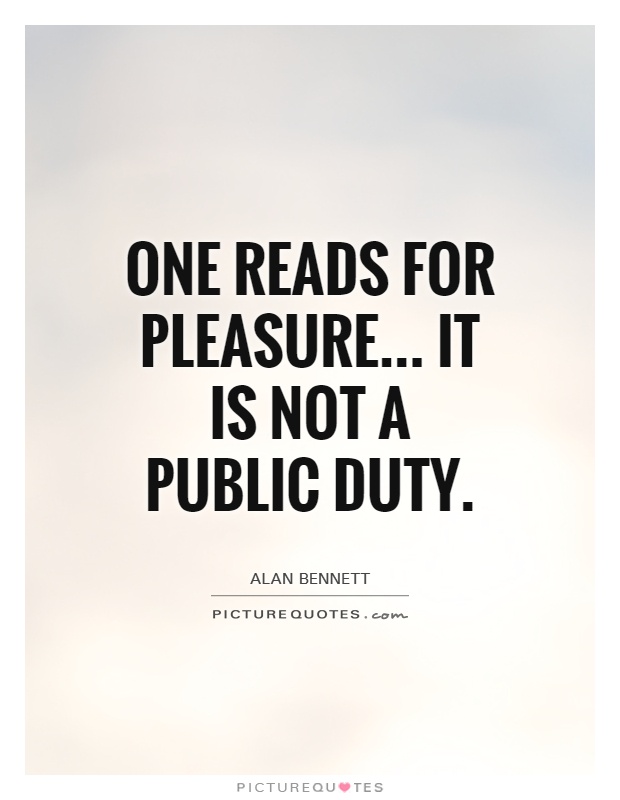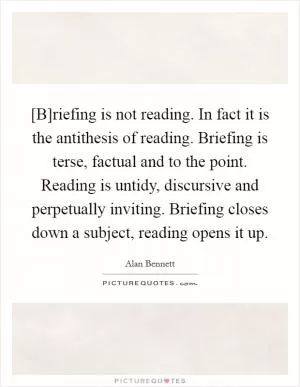One reads for pleasure... it is not a public duty

One reads for pleasure... it is not a public duty
Alan Bennett, the renowned British playwright and author, has often been quoted as saying, "One reads for pleasure... it is not a public duty." This sentiment encapsulates Bennett's belief in the intrinsic value of reading for enjoyment and personal fulfillment, rather than as a means of fulfilling societal expectations or obligations.Bennett's own works, such as "The History Boys" and "The Uncommon Reader," reflect his deep appreciation for literature and the joy that can be derived from immersing oneself in a good book. In "The Uncommon Reader," Bennett explores the transformative power of reading through the character of Queen Elizabeth II, who discovers a newfound passion for literature and begins to question the constraints of her royal duties. Through this whimsical and thought-provoking novella, Bennett celebrates the simple pleasure of reading and the ways in which it can enrich and expand one's perspective on the world.
For Bennett, reading is not just a solitary activity, but a deeply personal and intimate experience that allows individuals to escape into different worlds, explore new ideas, and connect with the thoughts and emotions of others. In a society that often places a premium on productivity and efficiency, Bennett's assertion that reading is not a public duty serves as a reminder that the act of reading should be valued for its own sake, rather than for any external validation or approval.
Furthermore, Bennett's emphasis on reading for pleasure underscores the importance of self-care and mental well-being. In a world that is increasingly fast-paced and demanding, taking the time to indulge in a good book can provide a much-needed respite from the pressures of everyday life. By encouraging readers to prioritize their own enjoyment and fulfillment, Bennett's words serve as a gentle reminder to slow down, savor the moment, and immerse oneself in the simple pleasure of a good story.











 Friendship Quotes
Friendship Quotes Love Quotes
Love Quotes Life Quotes
Life Quotes Funny Quotes
Funny Quotes Motivational Quotes
Motivational Quotes Inspirational Quotes
Inspirational Quotes